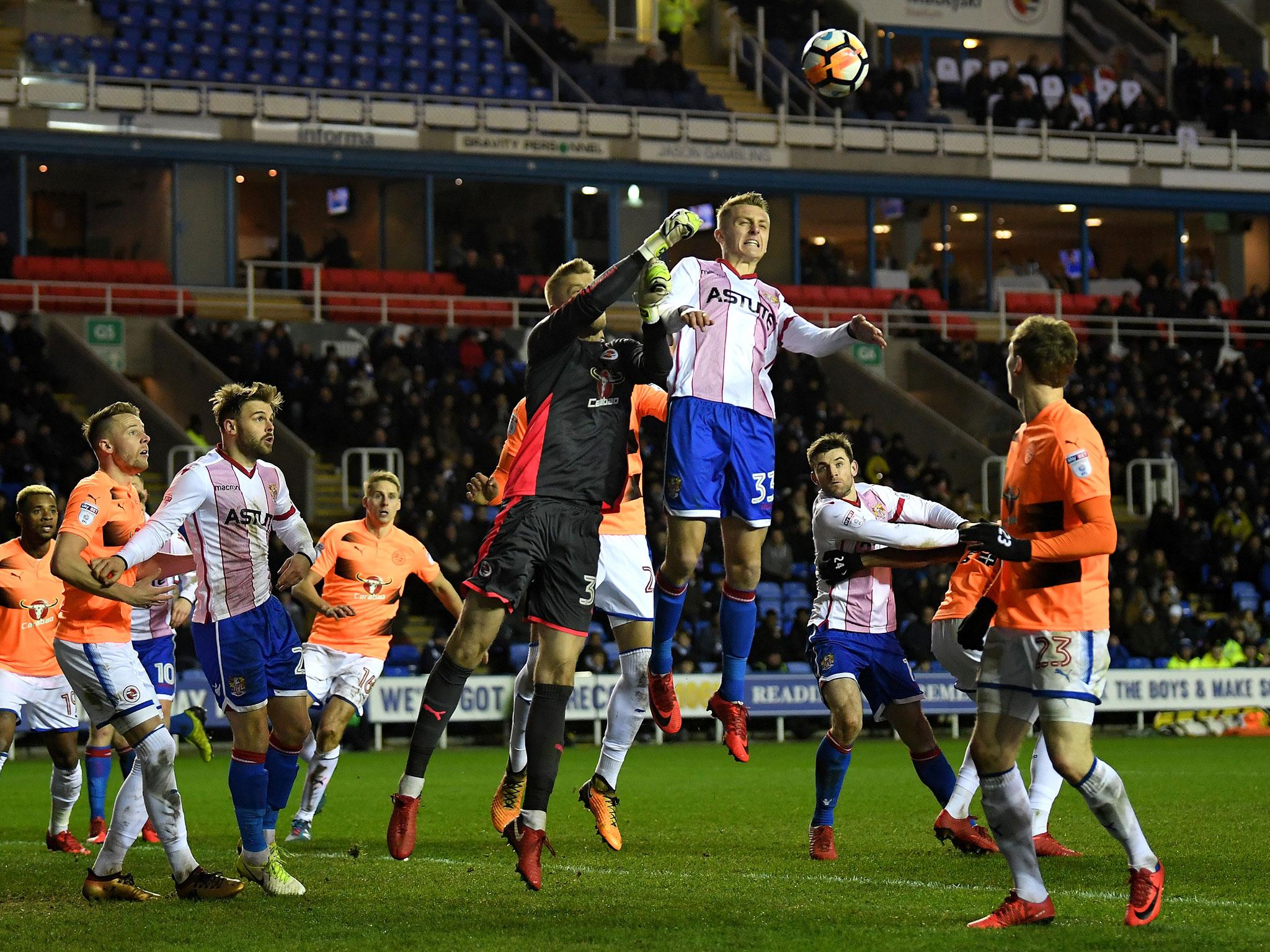The rise and rise of Ben Wilmot: The England teenager bucking the trend
Interview: Compared to his England teammates, who play for the likes of Manchester City and Chelsea, Wilmot practices his trade with Stevenage FC. His story makes for a refreshing change

Your support helps us to tell the story
From reproductive rights to climate change to Big Tech, The Independent is on the ground when the story is developing. Whether it's investigating the financials of Elon Musk's pro-Trump PAC or producing our latest documentary, 'The A Word', which shines a light on the American women fighting for reproductive rights, we know how important it is to parse out the facts from the messaging.
At such a critical moment in US history, we need reporters on the ground. Your donation allows us to keep sending journalists to speak to both sides of the story.
The Independent is trusted by Americans across the entire political spectrum. And unlike many other quality news outlets, we choose not to lock Americans out of our reporting and analysis with paywalls. We believe quality journalism should be available to everyone, paid for by those who can afford it.
Your support makes all the difference.In a star-studded England Under-19 squad, playing in Macedonia this week, one story catches you by surprise. Not Manchester City’s Phil Foden, the best player at last year’s Under-17 World Cup. Not Jadon Sancho, now of Borussia Dortmund. Nor any of the six players who won last year’s European Under-19 Championship in Georgia, including Chelsea’s Mason Mount, Trevoh Chalobah or Dujon Sterling. Nor the two young Arsenal stars, Reiss Nelson or Eddie Nketiah.
Those players are all the super gifted, immaculately honed products of England’s best Category One academies, the great vindication of EPPP.
But among Paul Simpson’s squad, who first face Hungary on Wednesday afternoon, is a player from a very different background. Ben Wilmot plays for Stevenage FC, slogging it out every week in mid-table in League Two. He is a product of Stevenage’s own Category 3 academy, a small operation on a tight budget, a world away from the finishing schools of City and Chelsea. But Wilmot’s rise is testament to the quality of young footballer that can be found if you look outside the ranks of Category 1 players, and to the work of Leon Hunter and other staff since the establishment of the Stevenage academy.
Wilmot has only been playing first-team football for six months, and only played 10 League Two games for the side who were managed until this week by Darren Sarll. And yet in this brief exposure to senior football, Wilmot has shown a talent and assurance that explains why Paul Simpson has been watching him so closely, promoting him into this week’s England U-19 squad and making this the first England call-up in Stevenage’s history.
“I’m really excited but it still hasn’t really sunk in,” Wilmot told The Independent in his first major newspaper interview. “I personally don’t really see what I’ve done to achieve it. I know of a lot of my team-mates, but I don’t know them personally. A lot of them are from higher-ranked clubs, and I’ve never been to that level.”
But Premier League clubs have noticed what England have, which is why they are so keen to sign him. Back in January – the month in which Wilmot made his senior debut – Watford bid £500,000 for him. Tottenham Hotspur offered slightly less while Brighton, Liverpool, Derby County and Leeds United were also very keen to sign him. Stevenage’s asking price, however, is £1m, a figure that is likely to be met by a top flight side this summer.
For Wilmot everything is moving very fast since he made his senior debut six months ago, in a Checkatrade Trophy game at MK Dons in front of just 2,000 people. But after continuing to impress in Checkatrade and FA Cup games he soon forced his way into the League Two team. Where he has learned far quicker than had he been playing development football, at Stevenage or elsewhere.

“It’s really good, because it’s proper,” Wilmot explains. “Youth team football is nowhere near what it’s like in the Football League. When you’re playing with men who need the result, need the bonuses to play the bills, it means a lot more than just playing at the training ground with the youth team. Mistakes aren’t taken as lightly as they are in youth team. The responsibility is far greater. But once you get used to that, you just play your own game and do what you can.”
Playing at centre-back in League Two is difficult for any teenager, but Wilmot’s fast adjustment shows how much inherent talent is there. He has only been playing at centre-back for just over a year, having being moved back there from midfield halfway through last season, the first year of his scholarship. But it was soon clear that he had the right skills for it, at this level or higher.
“When I first went to centre-half I hated it, I liked getting forward and scoring goal,” he said. “But the more I played there, the more I learned the position and started to enjoy it. Now, I’d much rather play where I’m playing than anywhere else on the pitch.”
His biggest strength is his ability to read the game and anticipate before things happen. “I’m not quite sure how I do it. I just see things that happen before others do. It’s just about being able to get in the right position to stop something that’s going to happen. Being able to read a pass they’re going to do, before they’ve even done it.” That is what Premier League scouts have spotted, and explains why the surprising name in the England U-19 squad will soon be no surprise at all.
Join our commenting forum
Join thought-provoking conversations, follow other Independent readers and see their replies
Comments